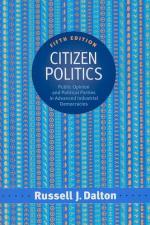|
This section contains 1,464 words (approx. 5 pages at 300 words per page) |

|
Political parties played an important role in nineteenth-century America and ultimately had an impact on the secession of the Southern states and the Civil War (1861–1865). The Democratic Party emerged under the leadership of President Andrew Jackson, who proclaimed himself a man of the people. Opposition to him arose in the form of the Whig Party, which formed in the 1830s and lasted until the 1850s. Whigs resisted the growth of presidential power, promoted internal improvements and the creation of a national bank, and opposed territorial expansion. But neither party held to a rigid set of policies.
Civil War-era Americans viewed political parties as devices to protect and preserve the freedoms promised in America's founding documents. The failure of the existing parties to address perceived threats to these values in the 1850s led to a partisan realignment. The ensuing Civil War and Reconstruction shaped the identities of...
|
This section contains 1,464 words (approx. 5 pages at 300 words per page) |

|


